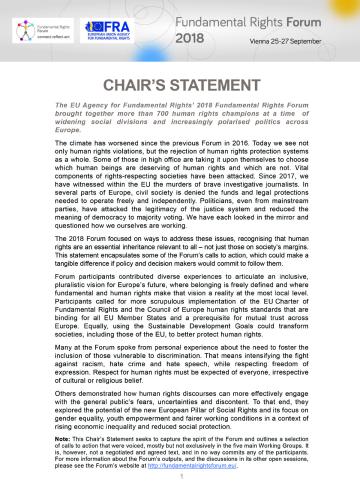Help us make the FRA website better for you!
Take part in a one-to-one session and help us improve the FRA website. It will take about 30 minutes of your time.
Zaštita podataka, privatnost i nove tehnologije
Highlights
- VideoIn the Internet age, information travels faster and further than ever before. But so does disinformation, feeding off of rumours, prejudices and stereotypes. How do we push against it? Watch FRA manual on tackling disinformation using +INPUT – be positive, identify, narrate, pioneer, unite and track.
- Report / Paper / Summary18June2020This document presents data from the FRA Fundamental Rights Survey. It includes data on opinions and experiences of people in the European Union (EU) linked to data protection and technology.
- Handbook / Guide / Manual25May2018Brz razvoj informacijske tehnologije povećao je potrebu za snažnom zaštitom osobnih podataka. To je pravo
zaštićeno instrumentima i Europske unije (EU) i Vijeća Europe. Zaštita tog važnog prava podrazumijeva nove
i značajne izazove dok tehnološki napredak dovodi do pomicanja granica područja poput nadzora, presretanja
komunikacija i pohrane podataka. Ovaj je priručnik namijenjen pravnicima koji nisu specijalizirani u području
zaštite podataka kako bi se upoznali s ovim novim područjem prava. - InfographicFundamental Rights Report 2019: 2018 was a landmark year for data protection. New EU rules took effect and complaints of breaches increased significantly.




















